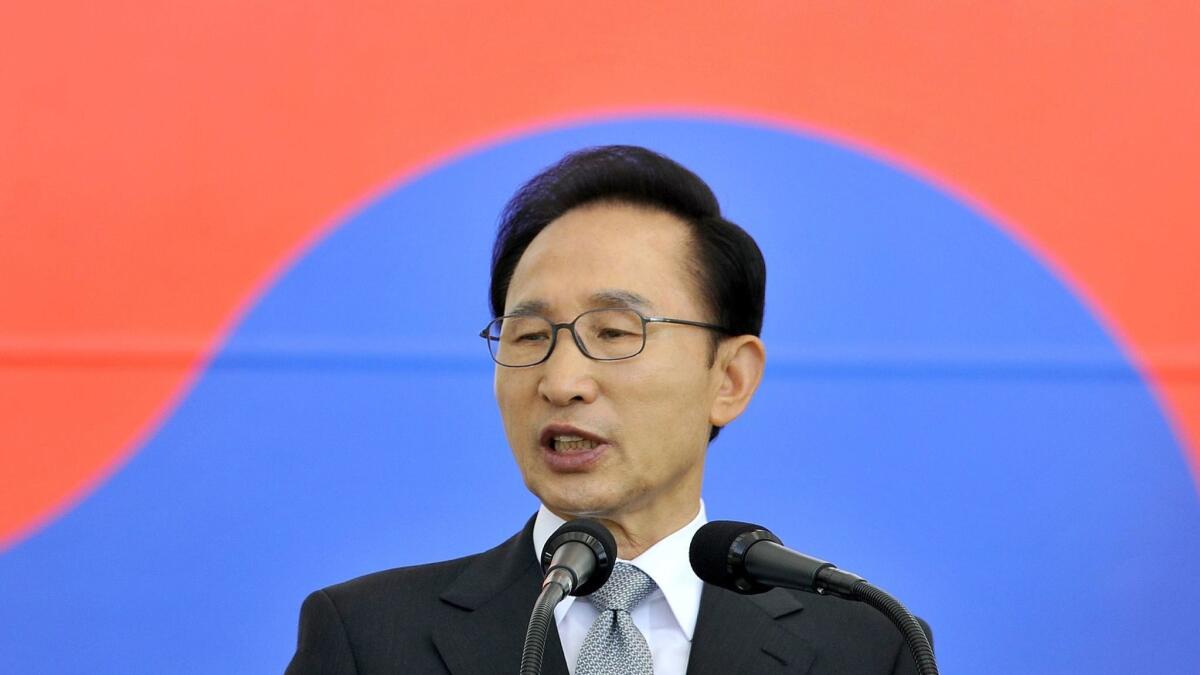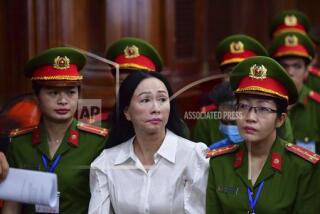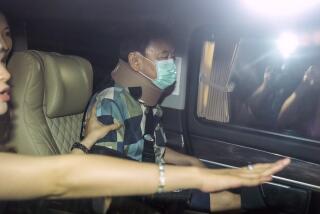South Korea’s former president gets 15-year prison term in corruption case

Former South Korean President Lee Myung-bak was convicted and sentenced to 15 years in prison Friday in a corruption case that has badly tainted his status as the country’s first leader with a business background who once symbolized the country’s economic rise.
Lee’s conviction came six months after his successor and fellow conservative Park Geun-hye was convicted in a separate corruption scandal that triggered the country’s greatest political turmoil in decades. She is serving a 33-year prison term. The back-to-back scandals severely wounded conservatives in South Korea and deepened a national divide.
Few past South Korean leaders are free from corruption scandals. Before Lee and Park, former liberal President Roh Moo-hyun jumped to his death in 2009 amid a high-profile corruption investigation of his family. His liberal predecessor and Nobel Peace Prize winner Kim Dae-jung was forced to apologize at the close of his term after all three of his sons were arrested or embroiled in scandals.
On Friday, Seoul Central District Court convicted Lee of embezzling 24.6 billion won ($21.7 million) from a company he owned called DAS; taking bribes from Samsung, one of his spy chiefs, a former lawmaker and a financial figure; and causing losses to state coffers. The court fined Lee 13 billion won ($11.5 million). It said Lee committed those crimes before and during his presidency, from 2008 to 2013.
The court said Lee took 6.1 billion won ($5.4 million) from Samsung in bribes that were used in legal expenses for DAS. That money led to a 2009 government pardon of Samsung’s convicted chairman, Lee Kun-hee, the court verdict said. The Samsung chief had been earlier fined and sentenced to a suspended three-year prison term in connection with losses at a Samsung affiliate and tax evasion.
Lee Myung-bak “has bitterly disappointed not only citizens who trusted and supported him but also our entire country,” chief judge Chung Kye-Sun said in a televised verdict.
Lee, 76, who has denied most of the allegations, didn’t attend the court session, reportedly citing his health and in protest of a court decision to allow a live broadcast. His lawyer said the broadcast would hurt South Korea’s international image and undermine national unity, according to the Yonhap news agency.
Lee and prosecutors have one week to appeal, according to the court.
Before serving as president, Lee was one of the most famous businessmen in South Korea and had been mayor of Seoul.
He joined Hyundai Group’s construction arm in the mid-1960s and led the company’s rapid rise at a time when South Korea’s economy grew explosively from the rubble of the 1950-53 Korean War.
Lee, who once peddled cheap snacks and ice cream on the streets as a poor teenager, started at Hyundai with an entry-level job but eventually rose to CEOs of 10 companies under Hyundai Group. He was dubbed a “salaryman legend” or a “bulldozer,” and his success story was chronicled in popular TV dramas.
While serving as Seoul mayor from 2002 to 2006, Lee further built up his can-do image by pushing through an ambitious yet tough project to demolish an inter-city highway and open up a paved-over stream to create a new landmark in central Seoul.
Lee won the 2007 election by the widest margin in South Korean history at the time, owing to public hope that he could revitalize the faltering economy. But his five-year term was marred by a global financial meltdown, massive street protests over the resumption of imports of U.S. beef and a rising military animosity with North Korea.
Before his arrest, Lee accused the current liberal government of President Moon Jae-in of retaliating over the 2009 death of Roh, whose corruption investigation occurred when Lee was in office. Moon, who was Roh’s friend and chief of staff, responded with fury, calling his accusation a challenge to South Korea’s judiciary order. Previously, Moon called the Roh investigation politically motivated by the Lee government.
Moon, who has a public approval rating of about 65%, faces growing conservative criticism that he’s done little to revive the economy while focusing too much on engaging with North Korea and digging out wrongdoing committed under the Lee and Park governments.
Park supporters have been regularly staging rallies in Seoul, calling for her release. They revere her dictator father Park Chung-hee, whose 1961-79 rule was marked by both severe human rights abuses and dramatic economic development.
After the elder Park was gunned down by his spy chief, ex-military generals Chun Doo-hwan and Roh Tae-woo ruled successively. After leaving office, both spent time in jail on bribery, treason, munity and other charges.
UPDATES:
Oct. 5, 2:50 a.m.: This article was updated with details on the Samsung bribery scandal.
This article was originally first published on Oct. 4 at 11:35 p.m.
More to Read
Start your day right
Sign up for Essential California for news, features and recommendations from the L.A. Times and beyond in your inbox six days a week.
You may occasionally receive promotional content from the Los Angeles Times.






